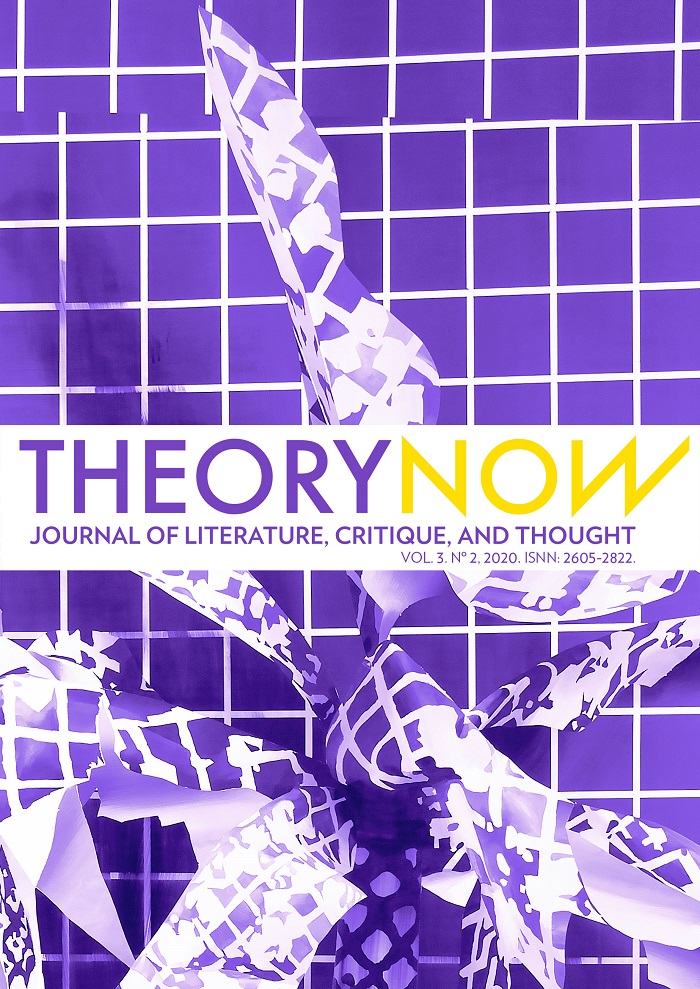Image-Excitation, image-solitude. George Bataille et Walter Benjamin lisent La Condition humaine d’André Malraux
DOI:
https://doi.org/10.30827/tnj.v3i2.15253Keywords:
Revolution, excitation, expense, value, nihilism, solitude, aesthete, class betrayalAbstract
Bataille’s and Benjamin's criticisms of André Malraux's novel La Condition humaine (The Human Condition) provide an image of the revolutionary intellectual preparing an act of suicide. From these divergent readings, a lesson must be drawn about the mobilizing political power of an image. Bataille understands revolution as a state of excitement which can be disposed of, where the material link between a life and the events that decide the destiny of a city is manifested. Revolution is considered an unproductive expense and, at the same time, an element of value in itself for those who devote themselves to it. This principle of pure loss is problematic, because its fervour is channelled under a perspective of appropriation. The insubordinate nature of the expenditure tends to be poured into a production of power in the form of sacred value, although only a fever gives the measure of this. For Benjamin, on the other hand, while the novel is charged with the dialectical tension from which the revolutionary action of the intellectuals proceeds, it remains captive to the circumstances of civil war and a nihilistic configuration of experience from which an image of the loneliness of the protagonists stands out, which becomes the essence of the supposed "human condition" and the consciousness from which they struggle.Downloads
References
Atlas. ¿Cómo llevar el mundo a cuestas? 26 nov.-27 mar. 2011, Museo Nacional Centro de Arte Reina Sofía, Madrid.
Bataille, Georges. « La notion de dépense ». [1933] Œuvres Complètes I : Premiers écrits (1922-1940). Paris, Gallimard, 1970, pp. 302-320.
Bataille, Georges. « Malraux (André). La Condition humaine ». [1933] Œuvres Complètes I : Premiers écrits (1922-1940). Paris, Gallimard, 1970, pp. 372-375.
Bataille, Georges. « La Structure psychologique du fascisme » [1933] Hermès, La Revue, no. 5-6, 1989, pp. 137-160.
Benjamin, Walter. « La position sociale actuelle de l’écrivain français » [1934], traduit par P. Rusch. Œuvres II. Paris, Gallimard, Folio-essais, 2000, pp. 373-409.
Didi-Huberman, Georges. Atlas. How to Carry the World on One's Back? Madrid, TF Editores/Museo Nacional Centro de Arte Reina Sofía, 2010.
Malraux, André. La Condition humaine [1933]. Paris, Gallimard, Folio, 1971.
Downloads
Published
How to Cite
Issue
Section
License
Theory Now. Journal of Literature, Critique, and Thought is an immediate open-access publication which is available at no cost for readers and authors alike. Authors are not charged any kind of fee for the editorial processing of their articles. Reading, downloading, copying, distributing, printing, searching, linking or reusing all published articles for non-commercial uses is allowed on the condition of citing the author, the journal and the editing body. All intellectual material published in this journal is protected under a Creative Commons Attribution-NonCommercial 3.0 Spain license.
Dissemination of the articles in social (Facebook, Twitter, Linkedin, etc.) and scientific networks (ResearchGate, Academia.edu, etc.), public repositories at universities and other institutions, blogs, personal or institutional websites, Google Scholar, ORCID, ResearchID, ScopusID, etc. is strongly encouraged. In all cases, the intellectual property of the articles and any possible monetary profits derived from them belong exclusively to the authors.













